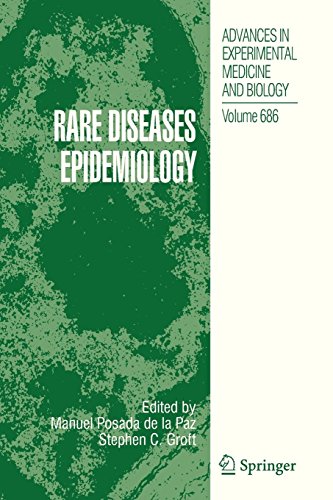Items related to Rare Diseases Epidemiology: 686 (Advances in Experimental...

"synopsis" may belong to another edition of this title.
This inclusive text is the first publication to address rare diseases as a public health problem. The work analyzes the constraints on epidemiological research at the same time as supplying solutions. It organizes the data by rare diseases groups.
From the reviews:
“It covers the common components of epidemiology and its collaborating disciplines to demonstrate the concepts, methods, and examples of the epidemiology of rare diseases. ... it is a useful resource for epidemiologists, the book can be used by other researchers and by funding agencies, foundations, and policy makers. ... This is an important state-of-the-art book in rare disease epidemiology. ... an extremely important contribution to the field and will be a useful reference in several disciplines.” (James C. Torner, Doody’s Review Service, July, 2011)
“The book is very well written, and deals with its subject delineated above comprehensively. ... the amount of information presented is very impressive. The multitude of the data presented in the reviewed work make it indispensable for anyone potentially active in the field of the rare diseases ... . this volume will remain the major reference book for quite some time, and highly recommend it to the healthcare planners, general practitioners and those specializing in the field of the rare diseases ... .” (K. Pagava and I. Paghava, Georgian Medical News, Vol. 193 (4), 2011)
"About this title" may belong to another edition of this title.
- PublisherSpringer
- Publication date2012
- ISBN 10 9400733380
- ISBN 13 9789400733381
- BindingPaperback
- Number of pages564
- EditorPosada De La Paz Manuel, Groft Stephen C.
(No Available Copies)
Search Books: Create a WantIf you know the book but cannot find it on AbeBooks, we can automatically search for it on your behalf as new inventory is added. If it is added to AbeBooks by one of our member booksellers, we will notify you!
Create a Want
